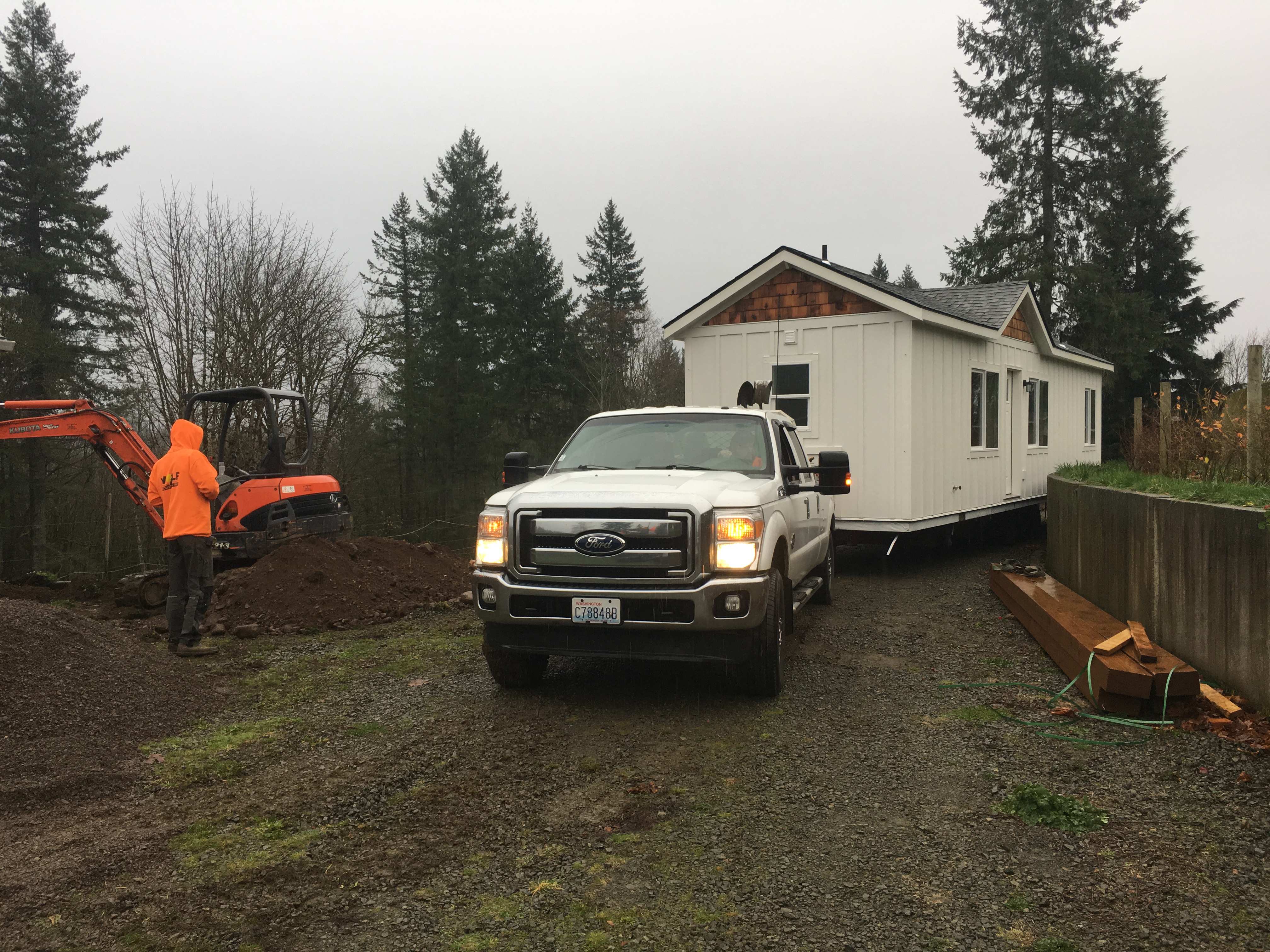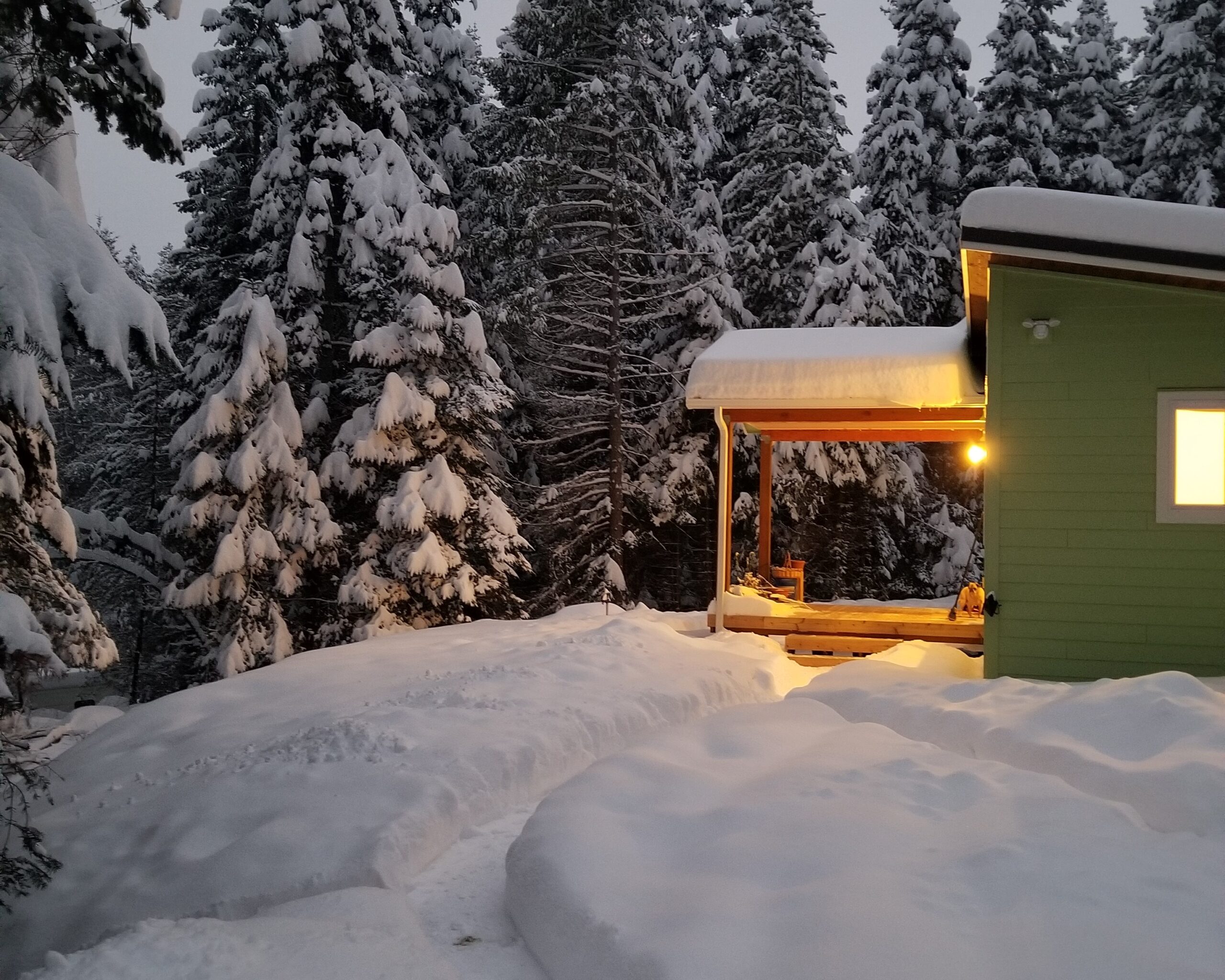Is it legal to own a tiny home in Clark County or Multnomah County? We’ve been asked this question hundreds of times over the years, and the answer never fails to surprise.
Let’s start with the framing of the question: owning a tiny home and inhabiting a tiny home are 2 very different things. Just as you might own an RV or camper trailer and leave it on your property, living in the unit means a completely different criteria must be met.
For the sake of this post, we’ll assume you’re interested in both owning and occupying / renting your tiny home.
So is it legal? The short answer is it depends on the jurisdiction your home will be located in, and to what standards your home was built.
Different Types of Permittable Structures
While permitting isn’t required to own a tiny home, it is necessary in most cases to inhabit the home long-term. Most counties and cities in the Pacific Northwest will only permit a structure that has been placed on a foundation.
Homeowners that prefer to keep their home trailer-mounted instead will face rules and regulations similar to that of an RV – meaning that often times you will be limited to short-term occupancy and will be unable to offer the unit for rent.
Each jurisdiction allows certain structures to be added to a parcel – though the naming conventions vary. For example, an accessory dwelling unit might instead be referred to as a secondary dwelling unit in the City of Hillsboro.
Let’s start by diving into the different ways a home might be permitted.
Primary Dwelling
A primary dwelling is considered the only habitable structure on the property. It’s common for most jurisdictions to allow a tiny home as a primary dwelling, but more often than not you will need to first meet community requirements.
Most subdivisions or properties that fall within a homeowners associations boundaries are subject to more concise rules, such as a minimum home size. This is typically done in an effort to control neighboring property values.
Some areas offer an alternative specifically for small homes, such as cottage housing.
Accessory Dwelling Unit
The most common permit issued to a tiny home is for use as an accessory dwelling unit – also known as an ADU. While a primary dwelling is the only structure on a parcel, an accessory dwelling unit is not.
A home is classified as an accessory dwelling unit if it contains bedrooms and is allowed to utilize a range for cooking – both fundamental needs in a ‘dwelling.’
It is important to understand that a bedroom is differentiated by inclusion of a closet space. A room that does not contain a closet may be instead referred to as an office.
Accessory Structure
Not to be confused with an accessory dwelling unit, an accessory structure does not need to meeting the criteria of a ‘dwelling.’
This means that while it is an additional structure to the primary dwelling on the property, it does not need to feature a bedroom nor is it allowed to include a range.
Though less common than an ADU, many counties have adopted accessory structures among their permitted structure types.
Guest House
A structure classified as a guest house is similar to an accessory dwelling unit because it also includes bedrooms.
Where the 2 structures differentiate is their use of a stove. An ADU may include a range, while a guest house may not. This is commonly circumvented when needed with the use of an electric cooktop.
It is common in rural areas for the jurisdiction to allow a guest house but not an accessory dwelling unit.
Hardship
While the rules and regulations may make it difficult to complete your project in some areas, a common alternative is use of a hardship affidavit.
Many jurisdictions will allow flexibility of it’s rules if it helps to ease the financial or medical burden of a family member. This can include housing for someone suffering a disability, financial hardship or simply old age.
Rural areas often offer a hardship as a means to add an ADU.
Comparing Urban and Rural Requirements
While any address in the United States will inherently fall within a county, not all fall within city limits. The difference dictates whose requirements you must meet; the county or the city.
Though typically each is different, you are also more likely to run into additional community regulations if you are located within the municipal boundaries of a city, such as a homeowners associations CC&Rs.
Clark County
For those located in Clark County Washington but not within a city jurisdiction, you are somewhat limited.
Tiny homes may be permitted as a primary dwelling or a guest house. Additionally, Clark County supplies a hardship affidavit for circumstantial permits.
While we offer permitting services with our modular homes, those who wish to go through the application process themselves can learn more in our guide to ADU permitting in Clark County.
Property owners may instead find themselves within a cities jurisdiction. You can find additional posts on the following municipal boundaries in Clark County:
- The City of Vancouver
- The City of Battle Ground
- The City of Woodland
- The City of Camas
- The City of Washougal
It is important to note that if you successfully complete a hardship permit, you will need to renew your application annually via mail or a visit to the counties permitting office.
Multnomah County
If you’re located in Multnomah County, you have many more options in how your tiny home is permitted, thanks in-part to the recent addition of the Residential Infill Project.
Depending on if you are located within city limits or not, you will either report to Multnomah county directly or to the City of Portland.
The difference of jurisdiction changes what types of homes are allowed on your property as well as other zoning and set-back requirements. Structures allowed in Multnomah County include an accessory dwelling unit, an accessory structure, a guest house and a hardship.
You can learn more about permitting a tiny home in Portland on our blog.
What Happens If You Don’t Apply for a Permit?
There are many ways to take four walls and a roof and call it a home and we’re here to present them in as many usable ways as possible. Our goal is to provide options to empower the choices that will have the best long-term outcome.
The best way to answer the original question is that yes it’s legal to live in a tiny home in Clark County or Multnomah County as long as you get a permit or the regulators announce that they won’t be enforcing the rules as what happened in Multnomah / Portland, OR.
If you still have questions about the technical details of a specific site being legal to have a tiny modular home, please don’t hesitate to reach out to us and we’ll do our best to answer any questions that you might have.





I’d like to buy a pre built tiny home I found for my daughter to live in on our property outside of la center city limits in Clark county. L and I acts like I can not do that because the one I want does not have their golden seal. Is there a way around this?